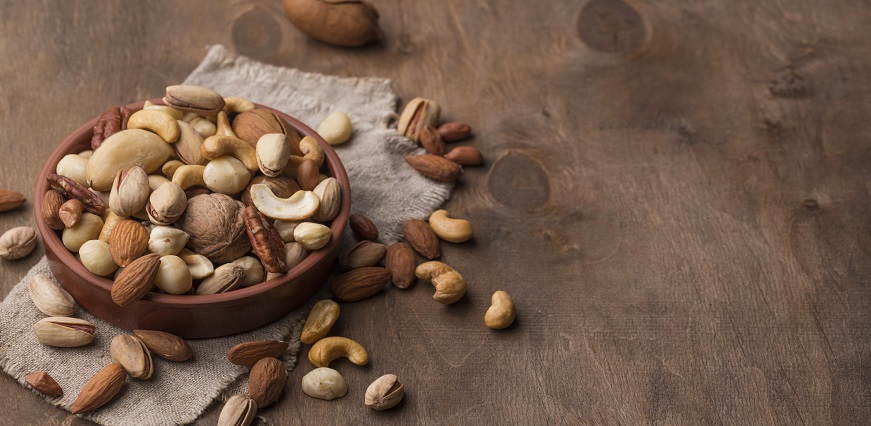





No lab centers are available in this city

Kidney stones are a common and painful problem, but there are ways to prevent them. One way is by avoiding certain foods that are known to contribute to kidney stones. In this blog post, we will explore some of the foods you should avoid if you are susceptible to kidney stones. We will also provide some tips on how to make sure you are getting enough of the nutrients you need without increasing your risk for kidney stones.
Kidney stones are small, hard deposits of minerals and acid salts that form on the inner surfaces of your kidneys. As your kidneys filter waste from your blood, they create urine. Sometimes, when waste materials in your urine are too concentrated, they can form crystals. Over time, these crystals can grow into kidney stones.
Nuts are a common food that people with kidney stones should avoid. While nuts are a good source of protein, they also contain oxalates, which can contribute to kidney stones. Nuts also tend to be high in phosphorus, another mineral that can promote kidney stones.
One ounce of dry-roasted peanuts contains almost 200 milligrams of sodium and that's without any added salt. Peanuts are also high in phosphorus, which can further increase the risk of kidney stones.
Spinach is one food that you should avoid if you have kidney stones. Spinach is high in oxalate, which can increase the risk of kidney stones. Oxalate binds with calcium in the body to form calcium oxalate, which is a major component of kidney stones.
Rhubarb contains high levels of oxalates, which can increase the risk of calcium oxalate stones. If you have kidney stones or are at risk for them, it's best to avoid rhubarb.
Miso soup is a traditional Japanese soup made with fermented soybean paste, rice, vegetables, and sometimes fish. While miso soup can be a healthy part of a balanced diet, it is high in oxalate, which can increase the risk of kidney stones.
Grits are made from corn and contain a high amount of oxalate. Oxalate is a compound that can bind with calcium in the kidneys and form kidney stones. For this reason, it's best to avoid eating grits if you're prone to kidney stones.
Baked potatoes with skin are a high-oxalate food, so they should be avoided if you’re trying to prevent kidney stones. If you do eat baked potatoes with skin, be sure to drink plenty of water afterward. This will help flush the oxalate out of your system and reduce your risk of developing kidney stones.
If you are prone to kidney stones, it is important to be mindful of the foods you eat. Some foods can increase your risk of developing kidney stones, while others can help prevent them. Be sure to talk to your doctor about which foods to avoid and which ones to include in your diet. With a little bit of planning, you can enjoy a healthy and delicious diet that won't put you at risk of developing kidney stones.
Maxlab offers an exhaustive list of tests for a comprehensive diagnosis of your health. Take a look at Kidney Function Test for detecting stones in the body.
 Allergy Test
Allergy Test
 Anemia Test
Anemia Test
 Auto immune
Auto immune
 Blood disorder
Blood disorder
 Bone and Joint
Bone and Joint
 Cancer Test
Cancer Test
 Cardiology Test
Cardiology Test
 Covid Recovery
Covid Recovery
 Dengue Test
Dengue Test
 Depression
Depression
 Diabetes Test
Diabetes Test
 Fatigue
Fatigue
 Fever Test
Fever Test
 Full body
Full body
 Gastro Test
Gastro Test
 Gastrointestinal
Gastrointestinal
 Gynaecology Test
Gynaecology Test
 Heart Test
Heart Test
 HIV Test
HIV Test
 Hormone Test
Hormone Test
 Hypertension
Hypertension
 Immunity Test
Immunity Test
 Infectious Disease
Infectious Disease
 Infertility Test
Infertility Test
 Influenza Test
Influenza Test
 Iron Test
Iron Test
 Kidney Test
Kidney Test
 Liver Test
Liver Test
 Lung Test
Lung Test
 Nephrology
Nephrology
 Obesity
Obesity
 Orthopedics Test
Orthopedics Test
 Physician
Physician
 Pollution Health Checkup
Pollution Health Checkup
 Pregnancy Test
Pregnancy Test
 Prostate Test
Prostate Test
 Senior Citizen Test
Senior Citizen Test
 STD Test
STD Test
 Thyroid Test
Thyroid Test
 Tuberculosis Test
Tuberculosis Test
 Vitamin Test
Vitamin Test
 Women Health Test
Women Health Test
Sign up takes less than 60 secs and gives you access to your offers, orders and lab tests.
Looks like you are not registered with us. Please Sign up to proceed
OTP will be sent to this number by SMS
We have successfully received your details. One of the agents will call you back soon.
 To reach our help desk call 9213188888
To reach our help desk call 9213188888
No Lab Centers are available in this city
Looks like you are not registered with us. Please Sign up to proceed
OTP will be sent to this number by SMS
Not Registered Yet? Signup now.Looks like you are not registered with us. Please Sign up to proceed





 7982100200
7982100200.png)